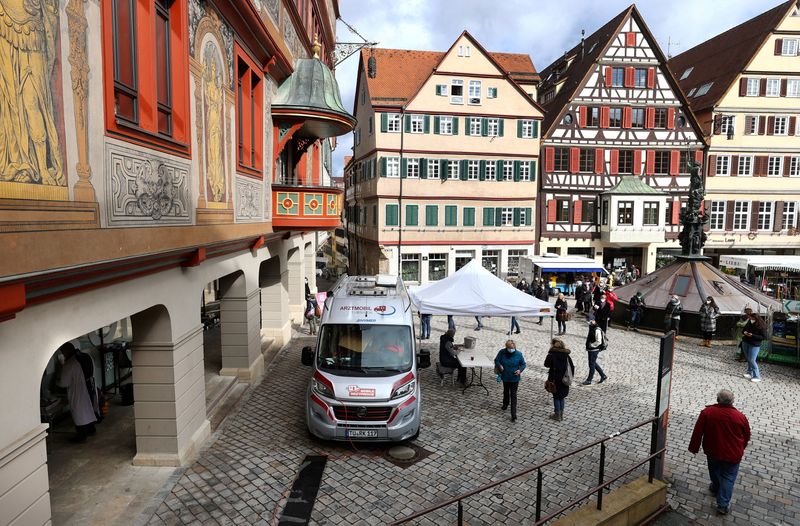BERLIN (Reuters) -Germany's relief package to help citizens and companies cope with soaring inflation will amount to 13 billion euros ($12.86 billion) this year, of which the federal government will contribute 12 billion, the finance ministry said on Wednesday.
With year-on-year inflation running at 7.9% in August, Berlin has been under pressure to provide further aid for consumers and businesses hit by a surge in energy prices.
Aid for 2023 will amount to around 42.5 billion euros, of which 24.6 billion euros will come from federal coffers, according to a ministry breakdown of the package announced on Sunday.
A one-off payment of 300 euros for pensioners would eat up almost half of the promised relief for 2022, amounting to 6 billion euros, while energy-intensive firms would get a total of 3 billion euros over this year and next, the document showed.
Some 8.5 billion euros in 2022 and 2023 will go towards reducing value-added-tax on gas consumption.
Some 10.1 billion euros, the biggest part of the allocated funds, will be dedicated in 2023 to raising income tax thresholds in response to inflation, as outlined in August.
A discounted public transport ticket, a successor to the widely popular 9 euro ticket offered this summer, will take 3 billion euros next year.

The ministry said the breakdown did not yet include the financial effects of postponing a CO2 price increase, an agreed electricity price cap or the dampening of rising network charges which would amount to over 10 billion euros.
($1 = 1.0112 euros)